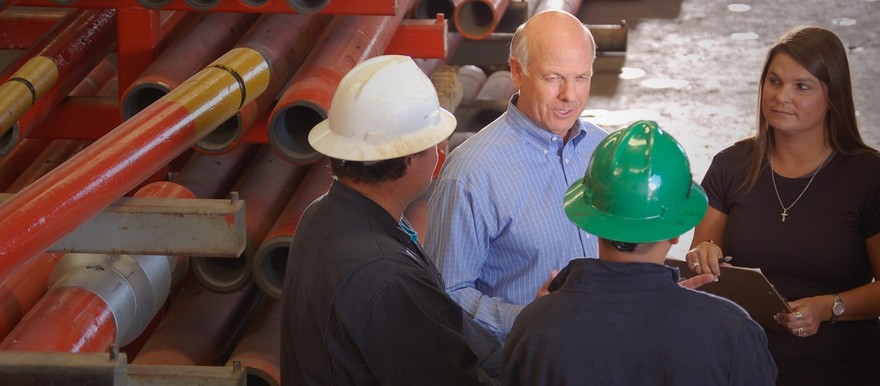US Congressman Steve Pearce advised South Sudanese leaders on Monday that they could build roads quickly in order to export crude oil via Ethiopia. He was speaking to press in Juba after a meeting with the South Sudanese President Salva Kiir Mayardit.
The emergency measure would restore some revenue to the cash-starved government of the new nation, presumably only until it regains access rights to the pipelines to Port Sudan.
“I believe that South Sudan by moving oil through trucks to Ethiopia could begin immediately. I believe the roads could be built,” said Pearce.
Pearce is a Republican member of the US House of Representatives. He formerly owned an oilfield services company in the state of New Mexico.
“We use dirt roads, gravel roads – we use any kind of road that’s necessary. And I believe that you could be trucking oil within three weeks, four weeks maximum, across pretty good crushed-rock roads,” he said, referring to potential routes across Upper Nile state toward the Gambella region of Ethiopia.
The lawmaker’s proposal was framed clearly as a personal opinion. It has not been backed publically by any official in the executive branch of the US Government.
Nonetheless, the idea was aired to the highest level of the South Sudanese government, and on the state media, at a time of significant diplomatic posturing ahead of the African Union Summit next week, during which the Sudanese and South Sudanese presidents are expected to hold face-to-face talks.
Sudan’s foreign minister and other top officials have been touring the continent to build support for their own positions. They are particularly anxious that the AU Peace and Security Council not refer the Abyei issue to the UN Security Council.
Four other Republican legislators accompanied Pearce: Senator James Inhofe, Senator John Boozman, Congressman Vernon Buchanan and Congressman Erik Paulsen.
Inhofe was the most senior of the visiting lawmakers. He implied in remarks to the press after meeting President Kiir that the US would be interested to extend its existing programme of military assistance to South Sudan as well as support negotiations on the oil shut-down.
“You have some great resources here. You have your oil and gas resources. You have ways that you can actually develop those resources to your benefit,” said Inhofe.
He continued: “The whole idea of freezing up a pipeline doesn’t make any sense. So we’re talking to them [the Sudanese government] about ways we might be able to do it. I happen to be the lead on the Senate armed services committee; we’re also talking about how we might be able to be of help to our good friend the president.”
As ranking member of the armed services committee — a position he succeeded from former presidential contender Senator John McCain — Inhof has considerable influence over military spending and oversight of operations, and is junior only to the Democratic committee chairman Senator Carl Levin.
Inhof, who politically opposes President Obama, nonetheless strongly backed the president’s order in October 2011 to deploy 100 US special forces troops to central Africa, a move aimed at destroying the Lord’s Resistance Army in western South Sudan, Congo and Central African Republic.
Meanwhile, in another development out of Washington, the US Government this week hosted representatives of the SPLM-N, the northern opposition group that before 2011 was formally linked to Juba through the SPLA 9th and 10th divisions in Kordofan and Blue Nile. It was not clear what was the agenda of their visit.
By Daniel van Oudenaren
Photo: Steve Pearce campaigns for congress in New Mexico (peapleforpearce.com) 




